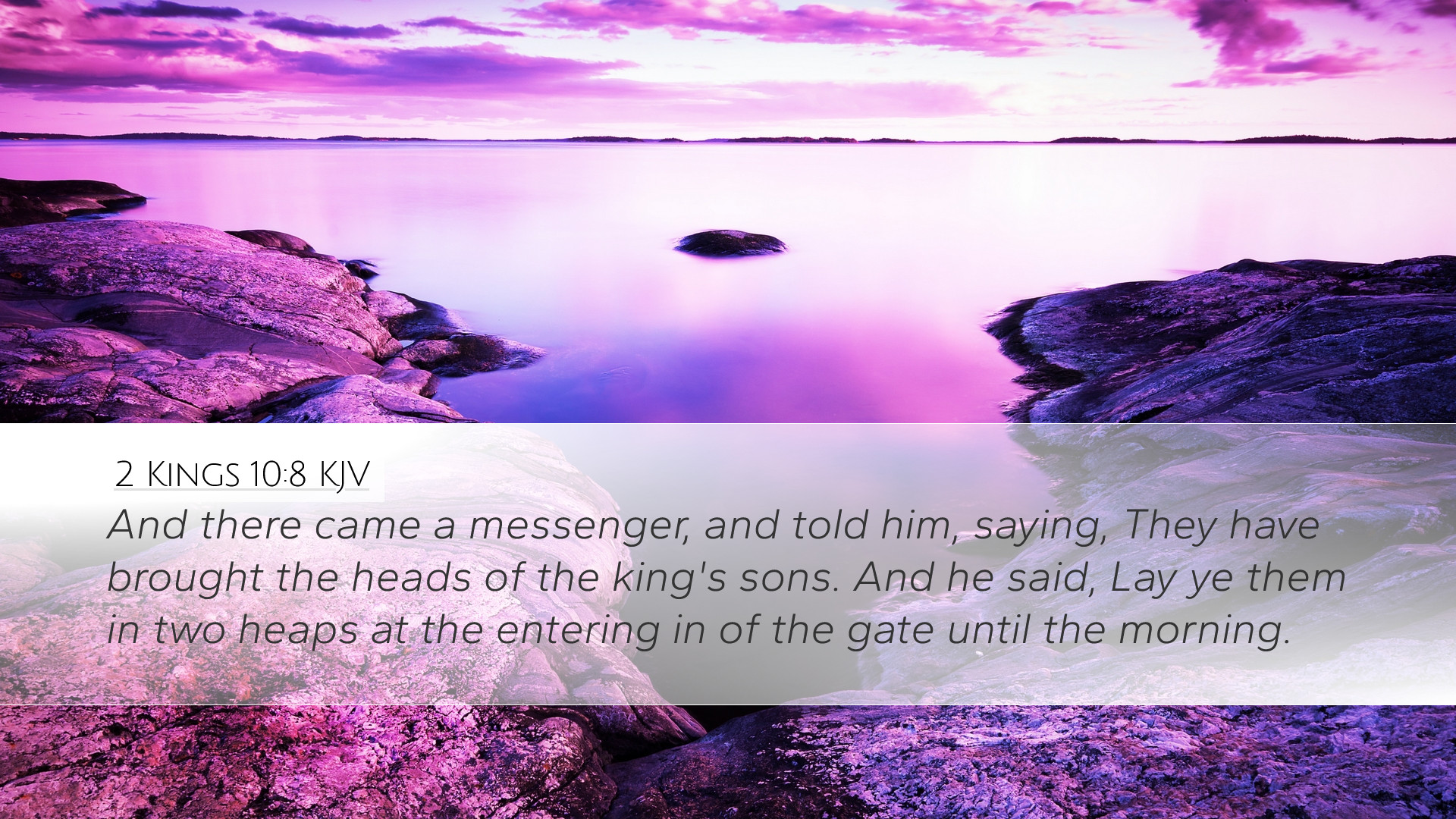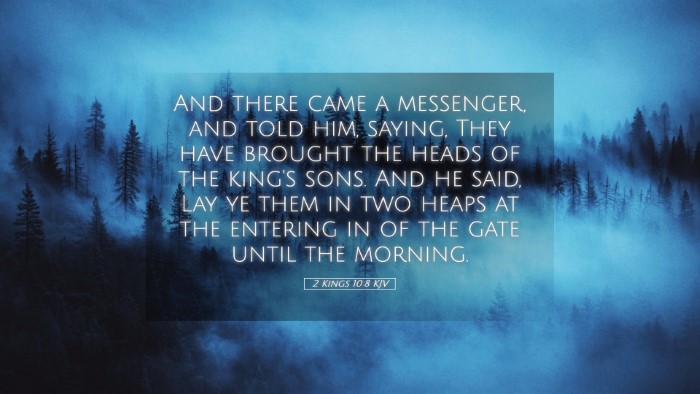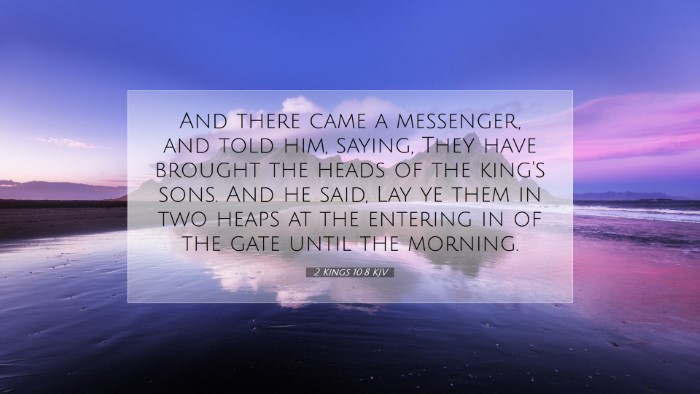Commentary on 2 Kings 10:8
2 Kings 10:8 states:
"And there came a messenger, and told him, saying, They have brought the heads of the king's sons: and he said, Lay ye them in two heaps at the entering in of the gate until the morning."
Contextual Overview
The context of this verse lies within a critical juncture in the history of Israel during the reign of Jehu. Following the command of God to annihilate the house of Ahab, Jehu initiated a campaign against the royal family, which culminated in the violent execution of Ahab's descendants. This action was viewed as both a fulfillment of divine prophecy and a means to stamp out idolatry that permeated the kingdom due to Ahab's influence.
Commentary Insights
Matthew Henry's Commentary
According to Matthew Henry, this verse encapsulates the grim realities of judgment manifesting in the physical deaths of Ahab's sons. The act of displaying their heads serves multiple purposes:
- Affirmation of Jehu’s Authority: By providing a graphic display of power, Jehu underscored his rightful claim to the throne and the divine mandate to eradicate any challengers.
- Warning to Others: The gruesome sight was a deterrent to those who might plot against Jehu or remain loyal to Ahab's lineage.
- Symbolic Meanings: The heads collected as trophies not only signify the end of Ahab’s dynasty but also represent the consequences of idolatry and turning away from Yahweh.
Albert Barnes' Notes
Albert Barnes highlights the chilling efficiency of Jehu's actions. He notes that the messenger’s report signifies a point of no return - the gruesome rebuke against the corrupt leadership of Israel. Barnes emphasizes:
- Divine Retribution: The actions taken by Jehu were seen as the outworking of God's judgment against Ahab's line, fulfilling earlier prophecies delivered through Elijah.
- The Severity of Jehu’s Campaign: Barnes underlines Jehu's ruthless approach as not merely a political strategy but as a necessary purification of the nation amidst rampant idolatry.
- Moral Reflection: The moral dimensions of this verse provoke contemplation regarding the lengths to which righteousness will go at times; it poses uncomfortable questions about divine justice and human agency.
Adam Clarke's Commentary
Adam Clarke provides additional depth regarding the cultural and historical aspects surrounding this event. He notes that the act of displaying the heads at the city gate signifies:
- Public Accountability: The gate served as a public place for governance and legal matters. By placing the heads there, Jehu made a public statement about the consequences of betrayal against the king.
- Implications for Israel's Future: Clarke alerts readers to recognize that such violent acts can leave a lasting impact on the collective psyche of a populace, suggesting a future filled with fear and intimidation rather than peace.
- Insight into Kingship: Furthermore, Clarke contemplates the role of divine sovereignty in the kingship of Israel, illustrating how Jehu's brutality could be contrasted with the mandate of a godly ruler.
Theological Implications
The incident illustrated in 2 Kings 10:8 elicits profound theological inquiry. Several implications emerge from the examination of this passage:
- Judgment and Mercy: The text depicts the tension between divine judgment and the ultimate mercy that followers are encouraged to pursue; it shows the severe cost of national repentance and the dire consequences of sin.
- The Nature of God: The actions taken by Jehu and God’s command present a complex portrayal of God’s righteous indignation towards sin, which can sometimes manifest in seeming cruelty.
- Human Agency: The passage reinforces the concept of human agency within the providential plan of God, drawing attention to how leaders must act with divine responsibility amidst their power.
Application for Pastors and Theologians
For pastors, the message of 2 Kings 10:8 serves as a stark reminder of the consequences of leadership failure and the importance of spiritual integrity. The call to action includes:
- Vigilance Against Idolatry: Modern leaders must present a clear stance against any forms of idolatry prevalent in society, ensuring that the church remains a beacon of truth.
- Emphasis on Accountability: Just as Jehu's actions were public, leaders today must act transparently and responsibly to maintain credibility and trust within their communities.
- Teaching on Divine Justice: Educating congregations on the balance of God's justice and mercy is crucial for spiritual growth and understanding God’s character.


